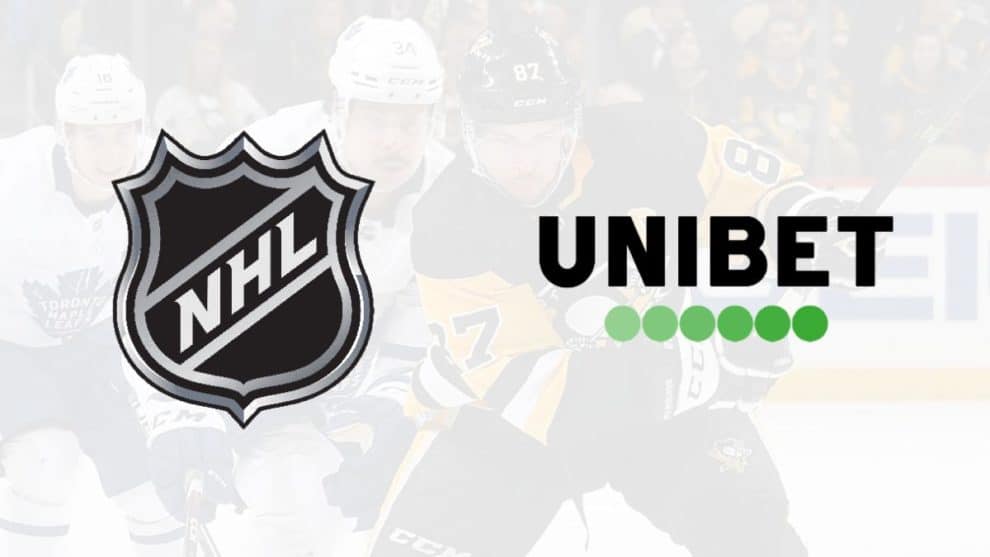
- Kindred Group owned Unibet has inked a multiyear agreement to become an ‘Official Partner’ of the National Hockey League (NHL) in Sweden.
- Unibet is the first Swedish sports betting company to receive official partnership status.
- Unibet has been reevaluating their presence in the floundering United States sports betting market.
The National Hockey League (NHL) was arguably the first US professional sports organization to see the ‘writing on the wall’ that gaming wasn’t going anywhere and that they ‘re better served using it as a revenue stream rather than fighting it. They were also one of the first US pro sports organizations to recognize that sports betting was ‘a thing’ internationally and *that* presented even more revenue opportunities. The NHL signed their first ‘official partner’ sportsbook in Europe over two years ago and have continued to look for opportunities to leverage their popularity outside of North America. They’ve just added an ‘Official Partner’ in Sweden as they welcome Kindred Group owned Unibet to the fold.
By now, you should know how this type of relationship works but here’s the press release outline of what Unibet will get as an ‘Official Partner’:
Kindred Group plc (Kindred) and its flagship brand Unibet becomes an Official Partner of NHL (National Hockey League) in Sweden by entering a multiyear agreement. Unibet will, as the first betting company in Sweden, leverage its Official Partner of the NHL designation to conduct dynamic marketing campaigns across the company’s digital betting offerings. Unibet already has a strong ice hockey offering that now will be strengthened through its partnership with the NHL, giving its customers a more authentic experience.
Philip Lagström, Country Manager Unibet Sweden, Kindred Group, is excited to join up with the NHL:
“I am very proud and happy that Unibet is the first betting company in Sweden to become an official sponsor of NHL. Through the partnership, we hope to increase the interest in ice hockey and the North American league. It will be very exciting to follow NHL in the upcoming years.”
“Ice hockey and NHL is very important for Unibet, and we have for a long time wanted to get more involved to cement the position as the customers’ first choice when they want to bet on ice-hockey by offering the absolute best, safest and most secure gaming experience.”
John Lewicki, NHL Vice President, Business Development and Partnerships, gave a pretty milquetoast quote on behalf of the league:
“We are excited to have Unibet as an Official Partner of the NHL. Kindred Group and its brands are well known for their dedication to responsible gambling. We welcome this opportunity to work with Unibet to continue to engage our robust and expanding hockey fanbase in Sweden.”
Sports betting has been unfairly singled out as a catalyst of gambling degeneracy. Why? Because it’s new and popular–at least in the view of ‘mainstream America’. There’s not a shred of evidence to vilify sports betting and particularly relative to other forms of gambling. Most US state lotteries give little more than lip service to responsible gambling as they target a core audience of lower income, lower education levels, mostly minority players with games that have a 50% or higher house edge. Sports betting has a demographic made up primarily of young, well educated, affluent males. That’s the way it has always been. Not surprisingly, a recent study by market research firm Ipsos shows that the more things change, the more they stay the same:
The polling also shows that sports bettors are more likely to be men (68%), under the age of 35 (39%), white (51%), or high-income earners (44% make over $110k).
Is responsible gambling important? Sure. Does sports betting have some unique responsibility to prostrate itself to anti-gambling scolds in the name of ‘responsible gambling?’ Not in the least. There’s a percentage of people who are compulsive gamblers, the same way that a subset of society that are alcoholics, over-eaters, hoarders or whatever. The Medical School at Yale University offers this explanation of just how small of a minority we’re talking about (emphasis added):
Excessive gambling can drain finances, ruin personal and professional relationships, and harm the gambler’s mental health. Gambling disorder affects about 1% of Americans who can’t stop, despite the consequences. Gambling covers more than a trip to the casino or an illicit poker game – it includes lotteries, online poker, and sports betting, and there’s a debate over whether it also includes daily fantasy sports leagues.
Yale Medicine is a leader in gambling disorder treatment research, with one of two Centers of Excellence in gambling research in the nation financed by the National Center for Responsible Gaming located at Yale. We take a multidisciplinary approach, including brain imaging and genetics, to investigate the causes and treatment of gambling disorder.
So let’s review: 1% of Americans are degenerate gamblers based on a study by one of the most respected medical schools in the US funded by the National Center for Responsible Gambling. There’s a number of causes, but among them are genetics and psychological disorders. They do say that men are drawn to more ‘strategic’ forms of gambling like sports betting and poker while women are drawn to ‘non strategic’ games like slot machines and bingo.
This is a very reasonable assessment and the key here is to understand the causes and treatment of compulsive gambling. Unfortunately, the US sports betting industry has let themselves be defined and vilified as a major cause of degenerate gambling. This is another thing that the industry needs to push back against in addition to protectionist regulation, usurious tax rates–and the fallacy that it somehow causes problem gambling. ‘Responsible gambling’ education should include the context that the most predatory form of gambling is the racket run by most US state governments ie: the lottery.









